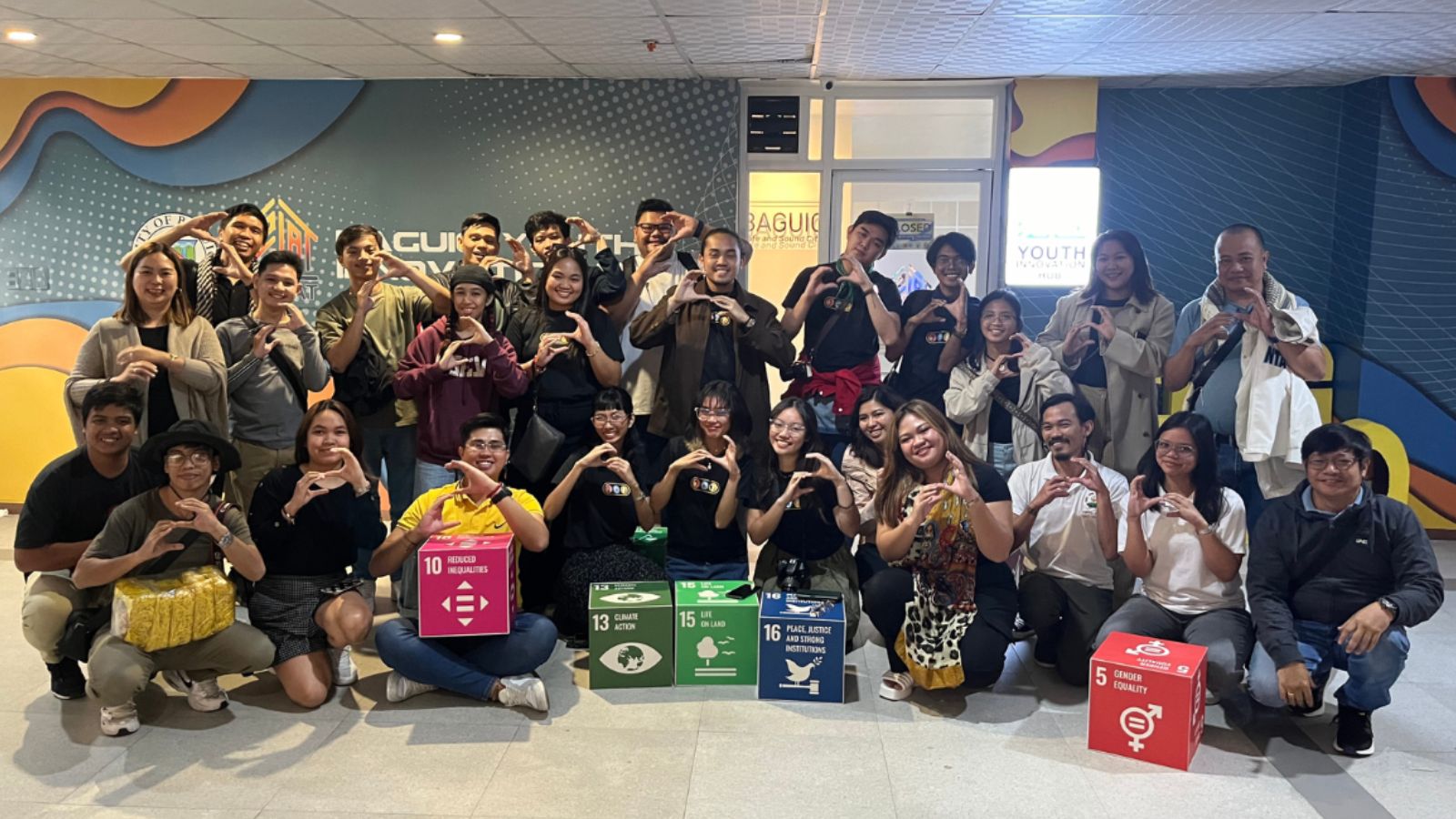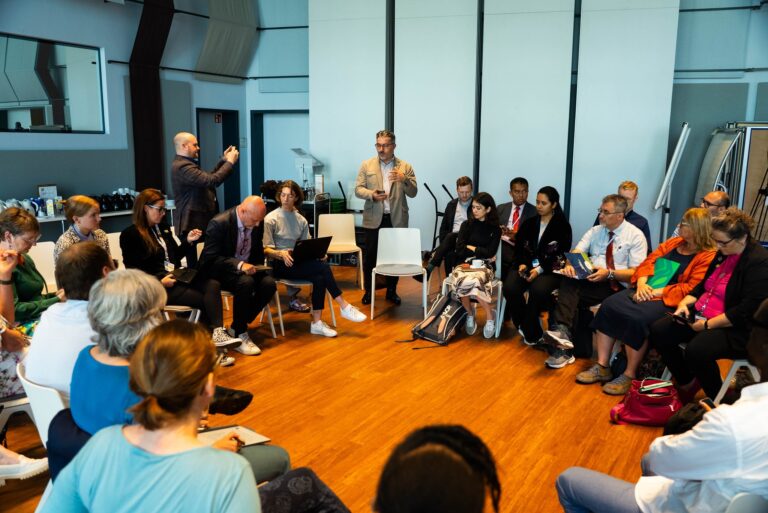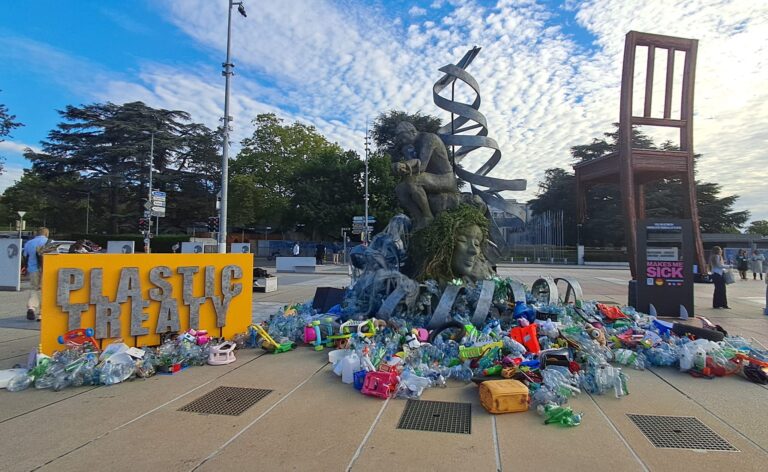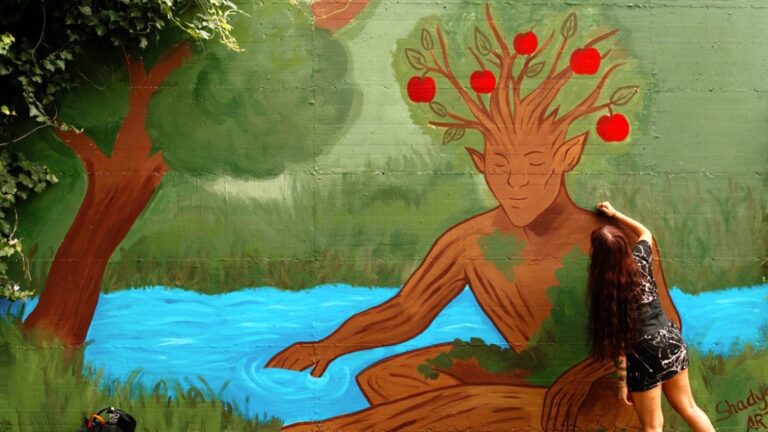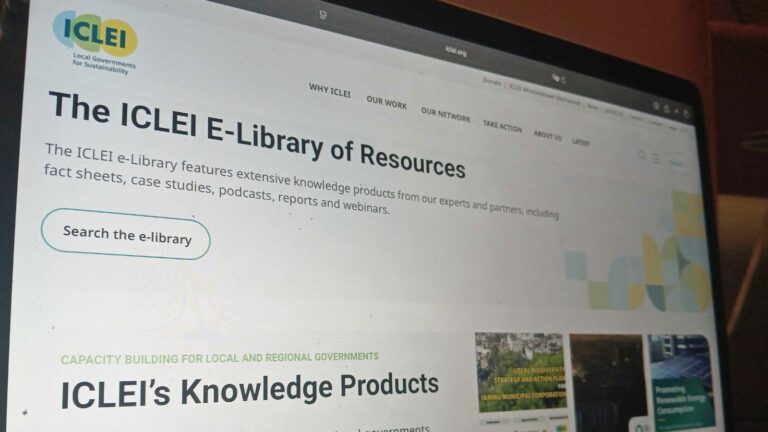Working with youth across the world: Cities powering inclusive climate action
Under the theme “Local youth actions for the SDGs and beyond,” this 12 August, the United Nations celebrates International Youth Day 2025, highlighting the crucial role young people play in shaping a more inclusive and sustainable world. According to the United Nations, half the planet’s population is 30 years old or younger, and this will grow to 57% by 2030. Notably, 69% of people globally believe that greater youth participation would lead to more inclusive and effective governance.
Aligned with these figures, International Youth Day 2025 also highlights the key role of local and regional governments in empowering youth. As the closest level to communities, they can create inclusive policies, allocate resources, and enable meaningful youth participation in local planning. By partnering with youth and integrating their priorities, local governments can help turn ideas into action. To mark the occasion, we feature how ICLEI Members are actively involving youth in shaping inclusive and impactful climate action.
Baguio, Philippines: A Youth Innovation Hub to co-create a safe and livable city
Every day, young people walk into Baguio’s SIGLAT Youth Innovation Hub with big ideas and the tools to bring them to life. SIGLAT stands for Synergize Innovation and Gravitate Leadership Towards Adaptive Technologies and means “vigor” in Ilocano, the local language. Born from the Safe and Sound Cities (S²Cities) program, it offers desks and high-tech equipment, as well as an inclusive space where youth design solutions for the city’s safety and well-being challenges, co-creating with local government, civil society, and private sector partners.
“In Baguio, we’ve transformed the narrative from youth as tomorrow’s leaders to youth as today’s changemakers. Through our city-led SIGLAT youth innovation hub and Safe and Sound Cities program, young people are not waiting for their turn; they are co-creating our city’s future right now. They sit at decision-making tables, design solutions for climate resilience, and drive innovation in our city,” says Donna R. Tabangin, Head of City Planning, Development and Sustainability Office of Baguio City.
Inside the hub’s Creative Space and Thinkers Room, college students from diverse fields have prototyped a digital crime mapping system, designed a smart garbage bin, developed a digital playpen for a village daycare, and created smoke-free zone interventions. Meanwhile, high school students have co-designed child-friendly street improvements through the Streets for Children workshop. The initiative has resulted in more secure and friendly streets that prioritize pedestrian safety and encourage active modes of transportation. It has decreased traffic hazards and established areas for children to freely walk, cycle, and play.
Since opening in September 2023, SIGLAT has hosted over 100 activities and engaged more than 3,000 youth through hands-on projects, outreach, and capacity-building programs.
Aligned with the city’s vision “Baguio 2043 – Creative, Inclusive and Livable City,” SIGLAT connects passionate young innovators with the city’s planning processes. “Our youth are not just voices to be heard, but architects of sustainable urban transformation, proving that when cities truly invest in young leadership, extraordinary change becomes possible,” Ms Tabangin concludes.
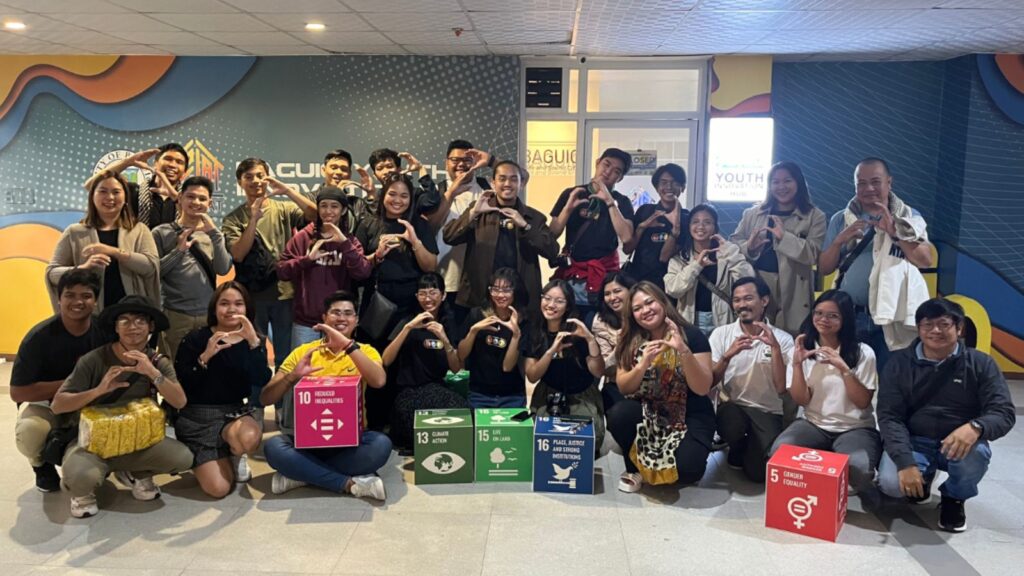
Photo credit: ICLEI Southeast Asia.
Campinas, Brazil: Shaping local to global climate action through Town Hall COP
“In Campinas, we believe that no climate policy is complete without listening to and working together with the younger generations. The sustainable future we aspire to is already being built, and the youth are an indispensable part of that construction,” asserts Braz Adegas Junior, Secretary of Climate, Environment, and Sustainability of the City of Campinas, referring to how the city engaged youth voices at its Town Hall COP, held during 11–13 June 2025 within the 2nd ICLEI Southeast Regional Meeting.
As a community-centered process, ICLEI’s Town Hall COP Initiative calls for the inclusion of a diverse range of voices, from local government representatives and civil society to the private sector, youth, and other actors who form the backbone of their communities.
Recognizing the value of these inclusive, locally-led dialogues, ICLEI South America and the City of Campinas launched “Mutirão pelo Clima,” a public call for youth-led proposals focused on adaptation and resilience. Inspired by the second letter from the COP30 Presidency, the initiative called on young people, collectives, associations, and educational institutions to present actions that respond to climate impacts on a local scale. These are examples of “self-determined contributions,” local, voluntary actions that complement NDCs by linking global ambition to territorial realities, serving as bottom-up climate action.
At the event, two prominent youth leaders participated in the Climate Justice Panel: Joana Gabriela, ICLEI Youth Council representative, who is a part of the Global Youth Biodiversity Network (GYBN), Engajamundo, Rede Brasileira de Biodiversidade e Clima (RBBC), Global Shapers and founder of the project Women Who Feed Cities (Mulheres que Alimentam Cidades); and Amanda Costa, founder and executive director of Perifa Sustentável.
Additionally, youth input contributed to the Campinas Statement, the event’s official outcome document set to be released soon. It responds to the call of the Climate Task Force, launched by the COP30 Presidency, and brings the gaze of local territories to the major challenges of the climate and biodiversity agenda. It represents the commitment of local governments in the Brazilian Southeast region to climate action, rooted in their territories, connected to global processes, and guided by justice, inclusion, and cooperation among different levels of government.
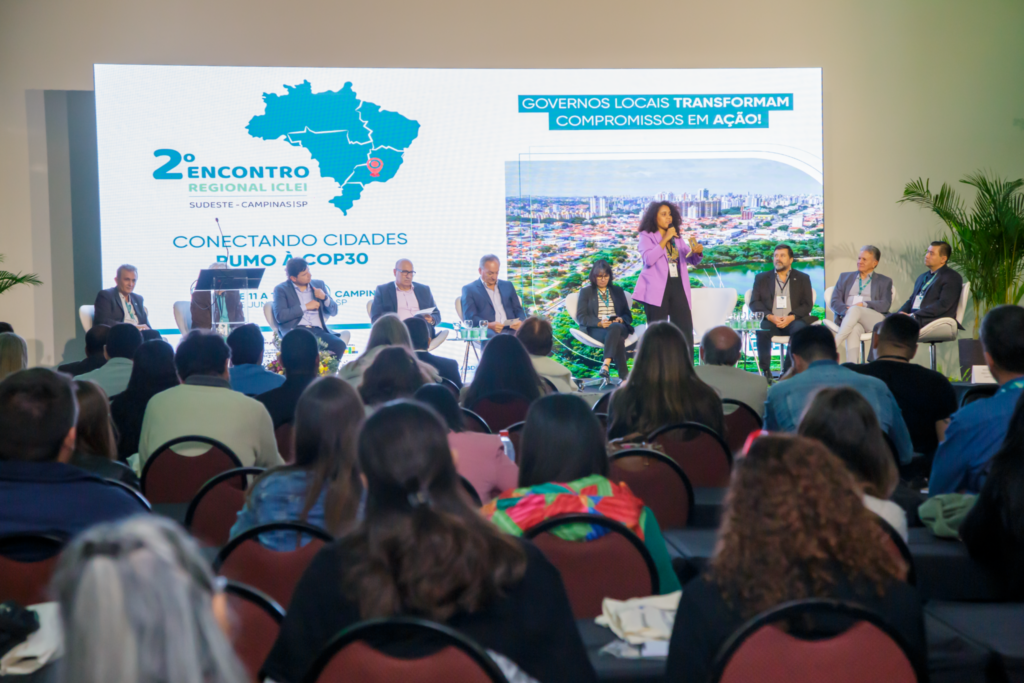
Almada, Portugal: Co-creating Nature-based Solutions
Recognizing a disconnect between its youth and the natural environment, the city launched dynamic, hands-on programs that blend environmental education with Nature-based Solutions (NbS) awareness. The goal: To nurture a generation of environmentally conscious residents and future conservation leaders.
This approach is already making waves. Student proposals for riverine habitat restoration have been adopted as municipal policy, and youth have played a key role in the ReDuna project – enhancing event design, shaping youth-focused communications, and creating interpretive signage. Working with schools, NGOs, and creative partners, Almada has shown the power of engaging young people through trusted intermediaries. By combining art, science, and open-ended problem solving, the city is fostering stronger connections between young residents and their environment.
These efforts are shown at ICLEI Europe’s Horizon Europe project NBS EduWORLD, which developed the Youth Inclusion Toolkit for Local Authorities. The toolkit offers 12 adaptable tools, from youth councils to participatory mapping and citizen science, to help cities meaningfully involve young people in co-creating NbS. It also emphasizes lasting, inclusive engagement, especially with marginalized youth. Further inspiring examples come from Genova, Parma, Friesland, and refugee-led initiatives in Türkiye.
Lusaka, Zambia: Transforming urban food systems
“Youth are not just the future; they are the leaders of today, who will shape the future we all hope to see,” said Lord Mayor Chilando Chitangala, speaking at the RISE Africa 2025 Action Festival. True to this vision, the city has a longstanding commitment to youth by engaging them in skills training and income-generating programs. Notably, through the AfriFOODlinks project and its Youth Ambassadorship program, Lusaka is supporting youth-led innovation to reshape urban food systems.
Womba Mufundi, a young chef and Lusaka’s Youth Ambassador, who champions sustainability in her catering business through waste reduction, clean energy, and eco-friendly packaging. As part of her ambassador role, Womba has highlighted Bargnbay, a youth-led tech startup which has grown into a thriving digital marketplace connecting households and businesses with fresh produce, boosting marketeers’ sales, ensuring fair prices for farmers, and reducing food waste. The innovation earned 4th place in the 2022 ZICTA Innovation Programme, with ambitions to expand across Zambia.
“My message to the city officials and leaders in my city about our food systems is that our food future is in your hands, and it is up to you to implement it while you are still in office, while you still have the power. So we’re counting on you,” she calls on this AfriFOODlinks Youth Ambassadors video featuring young leaders from cities across Africa and Europe, all united to spark urban food systems transformation.
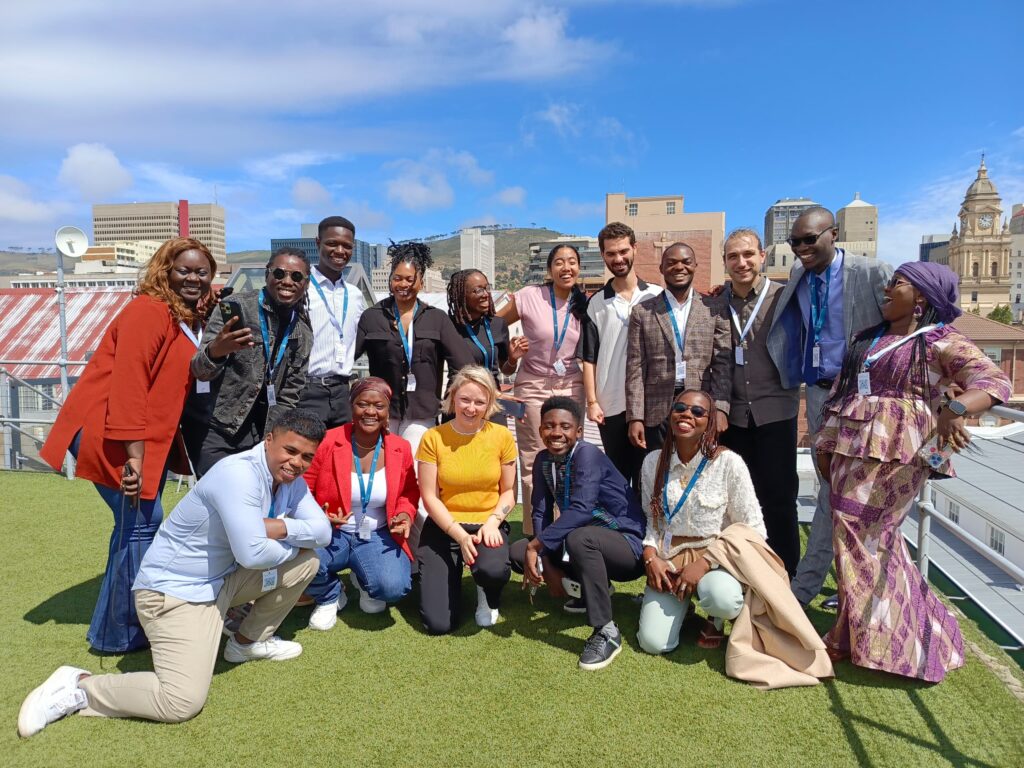
Recognizing that youth is one of the most vulnerable groups facing the impact of climate change, and aligned with ICLEI’s Vision on Youth Engagement in Global Climate Action, these inspiring stories acknowledge the diversity of young people and their needs across the different corners of the world.
By engaging youth as co-creators in climate solutions, cities and communities can lead a climate-ready future, one where decisions are collaboratively shaped by the very generation who will inherit and lead it.

